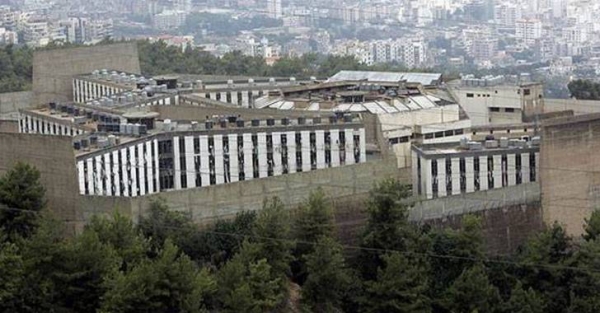Islamists in Roumieh Prison : Terrorists or Innocent?
Nahr El-Bared’s War and preceding events
The Nahr El-Bared camp is one of the Palestinian camps set up in Lebanon. It is located north of Lebanon, roughly 15 kilometers from Tripoli. On May 20, 2007, the camp witnessed armed clashes between the Lebanese Army and radical Islamists affiliated with a militant group that called itself Fatah Al-Islam under the command of the Palestinian-Jordanian national Shaker Al-Absi who was jailed in Syria between 2000 and 2005. The indictment issued in the Nahr El-Bared case identified the group as being made up of Syrians and Palestinians who had fought in Iraq alongside the Jordanian Qaeda-linked leader, Abou Mesaab Zarqawi. Upon their return to the Yarmouk Camp near Damascus, Syrian authorities pressured them to leave Syria, fearful of the rigid doctrine they had espoused during the wars in Iraq and Afghanistan. From 2006, these Islamists started infiltrating Lebanon and were dispersed across different camps. Against the drastic increase in the number of arrivals, the Islamists moved to north Lebanon and established the Fatah Al-Intifada centers (a Syrian-backed militant faction opposing Fatah). As their influence grew in the area, they seized control of the Nahr El-Bared camp. Al-Absi’s henchmen robbed a number of banks in Saida, Damour, Beirut and Tripoli. On May 20, 2007, ISF members cracked down on an apartment situated in Street 200 in Tripoli, searching for suspects in different robbery cases, particularly in the Banque Med’s robbery. Clashes broke out between the ISF members and the militants and soon expanded after a group linked to Al-Absi launched an attack on a Lebanese Army post in Mhammara killing a number of soldiers, thus providing the trigger for the Nahr El-Bared battles. Battles kept raging until September 2, 2007 and resulted in the army’s seizure of the camp and the escape of Shaker Al-Absi. The camp was reduced to rubble. 169 members from the Lebanese Army were killed and hundreds of Lebanese and Palestinian civilians were injured.
Referral of the case to the Justice Council
Because of the gravity of the crime and its devastating outcome, the government decided to refer the events of Nahr El-Bared which resulted in the death and injury of both military members and civilians, its ramifications and all the individuals who participated in, instigated or intervened in these events, in whatever capacity possible, to the Justice Council pursuant to the decree entered into force no. 514 dated July 4, 2007. The Minister of Justice ordered the appointment of Judge Ghassan Mounif Oueidat as prosecutor.
Indictment
Given the complexities that tinged the file, Judge Oueidat issued his indictment in the case roughly five years after the beginning of the investigation, on July 19, 2012. The accused, totaling 562 people, were referred to the Justice Council. Only 108 among them are serving time while the rest are on the run, released or have been killed (Table 1).
Islamist inmates
The Islamist inmates in the Roumieh prison are for the most part perpetrators who had a hand in the clashes of Nahr El-Bared in addition to suspects arrested during other clashes that shook Tripoli and the north such as the explosion in Al-Bohsas. Those charged over the 2013 Abra clashes between the Lebanese Army and the supporters of Salafist cleric Ahmad Assir and also those involved in the bombings in Lebanon since the summer of 2013 were detained with the Islamists. The combined number of all these inmates does not exceed 180.
As previously mentioned, foremost among these files is the file on the Islamists arrested for involvement in the events of Nahr El-Bared. Closing this case was delayed for several reasons:
- The lack of an adequate courtroom that could have accommodated the large number of detainees
- The difficulty and the complexity of the legal and judicial measures
- The hesitance of some of the judges to undertake the file, fearful of the risks that could have been posed to their own security. Thus, they kept on stalling until they were referred to retirement.
However, the interventions made and the pressures exerted began to pay off in 2013. The file was divided into 30 sub-files ramifying from the primary case. A courtroom was equipped at the cost of USD 6 million in the Roumieh prison in order to accelerate the trial and not to transfer the prisoners to the court in Beirut. The Justice Council began to deliver its rulings on these files.
By early October 2014, the Justice Council had finished its assignment, issuing judgments in 20 cases while another ten remained under trial. The rulings broke down as follows:
- Clearing 28 persons from the charges filed against them.
- Sentencing 3 suspects to death.
- Sentencing 7 suspects to life in prison.
- Sentencing 2 suspects to 15 years in prison.
- Sentencing one suspect to 12 years in prison.
A review of the indictment and the decisions issued by the Justice Council so far proves that the majority of the Islamists detained in Roumieh are criminals who have committed evil acts against Lebanon and its land and people. The continuation of trials is sure to result in the execution of many more suspects who are not innocent and the calls for their release are considered an infringement of the law and an invitation to practice terrorism and confront the security forces. We are therefore standing before one of two scenarios:
- The continuation of trials and the issuance and execution of sentences.
- The issuance of an amnesty law, as was the case with the Dennieh and Majdal Anjar events.
Urging speedy trials does not necessarily mean acquittal of the detainees and the Justice Council’s issuance of final and irrevocable rulings renders the amnesty law a breach of justice.


شاهد الجدول كاملا

شاهد الجدول كاملا








Leave A Comment